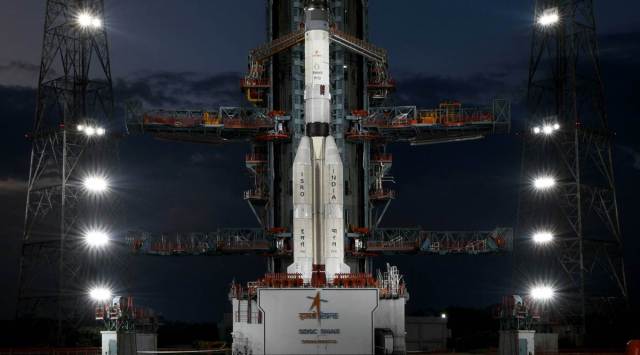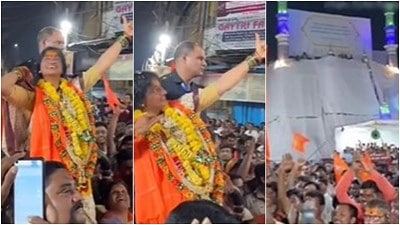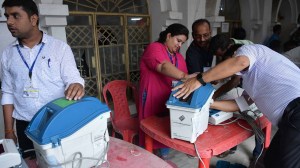- India
- International
ISRO successfully conducts ground test of solid booster stage for SSLV
The space agency usually declares a launch vehicle operational after two successful development flights.
 The launch vehicle will carry smaller payloads of about 500 kg in comparison to 1,750 kg carried by PSLV.
(File)
The launch vehicle will carry smaller payloads of about 500 kg in comparison to 1,750 kg carried by PSLV.
(File)THE INDIAN Space Research Organisation (ISRO) on Monday successfully completed the ground test of the solid-fuel based booster stage (SS1) of its new Small Satellite Launch Vehicle (SSLV), completing the ground testing of all three stages of the launch vehicle. The new launch vehicle is now ready for its first development flight, which is scheduled for May this year.
“The successful test of solid booster stage has given sufficient confidence to proceed with the first developmental flight of SSLV (SSLV-D1), which is scheduled in May 2022. The remaining stages of SSLV i.e. SS2 & SS3 stages have successfully undergone necessary ground tests and are ready for integration,” the space agency said in a statement.
The space agency usually declares a launch vehicle operational after two successful development flights.
The SSLV was designed to be smaller, cheaper, and quickly assembled for commercial launches on demand. The SSLV is likely to cost R 30 crore as compared to R 120 crore for each Polar Satellite Launch Vehicle (PSLV), which is India’s workhorse. It can be assembled by a team of six within seven days in comparison to a team of 600 that takes a couple of months to assemble a PSLV.
The launch vehicle will carry smaller payloads of about 500 kg in comparison to 1,750 kg carried by PSLV.

The SSLV launch, which was initially planned for 2020 end, has been repeatedly pushed as the pandemic resulted in fewer missions for ISRO – just four launches in the last two years. The delays, experts say, will result in India losing its global market share.
“Companies must have already booked their slots for the first development flight, but the problem is that they have been waiting for long. If the first launch is not followed by quick successive launches of the SSLV, the customers might move to other launch providers. ISRO will have to be ready with the manufacturing and assembly capacity before the first launch itself,” said Ajey Lele, senior fellow at Manohar Parrikar Institute for Defence Studies and Analyses.
“There is also a need for ISRO to create a separate launch pad for the SSLV so that quick launches can keep happening. And, the current first and second launch pad at Srikarikota can be used for the other ISRO missions. This will also reduce the turnaround time for SSLV launches.”
With the space sector being the domain of the government’s department of space, India accounted for less than 2% of the global space market. After the sector was opened up, the chairperson of the newly created body Indian National Space Promotion & Authorisation Centre (IN-SPACe) meant to regulate private space sector Dr Pawan Goenka said that the aim was to increase the share to 9%.
Apr 19: Latest News
- 01
- 02
- 03
- 04
- 05







































